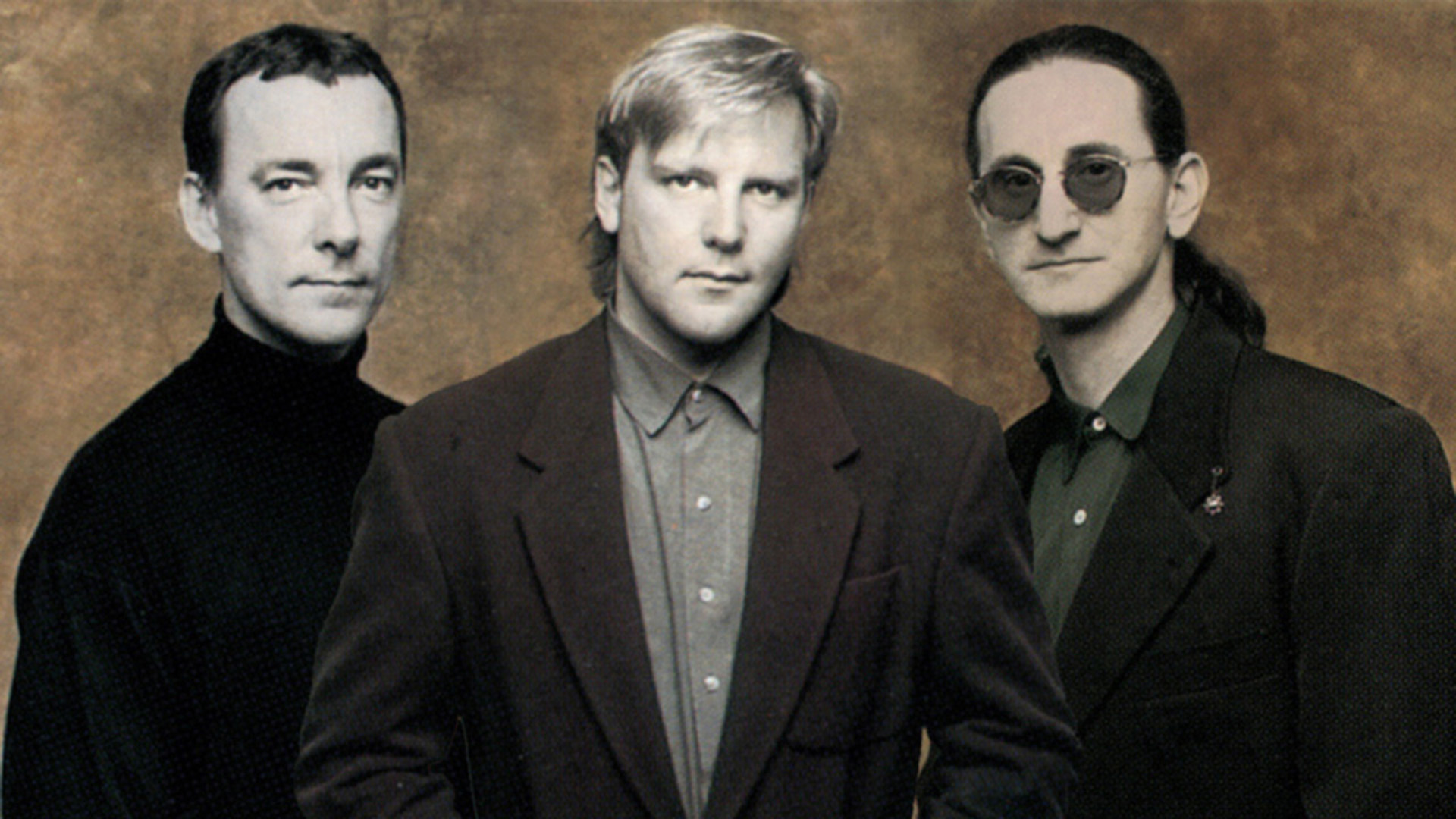Alex Lifeson Says Rush's No-Compromise Approach Is Key To Its Staying Power
By The Newt, Georgia Straight, January 30, 1992

When the Georgia Straight interviewed Queensryche vocalist Geoff Tate last month, the singer had some intriguing things to say about an alleged "backlash" against progressive rock, which he felt had been initiated by the music industry in the '70s. Tate uncovered a plot to undermine the growing popularity of musically accomplished bands like Yes and Genesis, its ultimate aim being to make it easier for talentless recording "artists" to go forth and multiply, reaping bigger profits for record companies.
When you look around today, the scarcity of progressive rock bands gives credence to Tate's theory, but not all of the so-called "dinosaurs" of the '70s are extinct. There is the odd exception, and Canada's irrepressible Rush is probably the oddest. As guitarist Alex Lifeson explained from Fresno, California, last week, his band's iron will to make music its own way has never been weakened by outside influences.
"We made the records we wanted to make, and no one was gonna tell us how to do otherwise," says the 38-year-old guitarist, whose band plays the Pacific Coliseum on Sunday (February 2). "We knew what we had to do, and we did it."
Rush has been doing it since 1974, releasing album after album. And - against all odds - every single one has sold well. So far, the band has released 14 studio albums - as well as three live discs and a compilation - and, commercially speaking, there hasn't been a stinker in the bunch. But try to decipher Rush's formula for success and you'll come up empty, because the group has never had one. Quite the opposite, in fact.
"There's always been a fear of repeating yourself," says Lifeson, "so we try very hard to do something different every time. I mean, there are only 12 notes in that scale."
There are only 26 letters in the alphabet, too, but that hasn't deterred drummer/lyricist Neil Peart from supplying rabid Rush fans with adventurous messages, whether they be inspired by history ("Bastille Day"), science fiction ("The Temples of Syrinx"), politics ("The Big Money"), or the atom bomb ("The Manhattan Project").
When Peart's words collided with the music of Lifeson and bassist/vocalist Geddy Lee, anything was possible. And to keep the resulting noise fresh, Lee and Lifeson often relied on the impromptu jams that would occur before concerts while they checked their sound.
"We had tapes and tapes and tapes of all those afternoon jams," says Lifeson, "and you could always pick out some half-decent stuff and put it all down to one tape and refer to it when you needed something to act as a spark, or when you needed a piece."
There was less reliance on previous jams with the band's latest album, Roll the Bones, though.
"With this record, we really sat down and just started playing," explains Lifeson. "We were much more into the flow of what we were doing at the time. This record picked up where Presto started, in that we wanted to go back to that real core three-piece that we kinda lost by experimenting with keyboards a lot. We've gone back to re-evaluating some of the things that Rush was all about, and found that we really enjoyed just rocking out."
Though, musically, Rush may have taken "a couple of steps sideways", as Lifeson puts it, one path the band has not strayed from is its original trio format. And don't expect the group to evolve into a quartet any time soon.
"We talked about that in the '70s," says Lifeson of expanding the line-up, "but decided that what we really wanted was to put the onus on ourselves to learn to play other instruments and work a little bit harder, if we could. So that's what we ended up doing, and we've never really looked back from that."
While Lifeson has taken time out from his career with Rush to produce and/or play with the occasional outside act, the venerable hero of Canuck rock has yet to make his own solo album. Considering his status among guitar fanatics and the commercial track record of his band, one might wonder what's holding him back.
"I've never really had the desire for it," he says, "and I think that goes for all of us. Our musical aspirations seem to be satisfied with Rush. We do, occasionally, work with other musicians, but to do a solo project - that's like looking at the same kind of time requirement that Rush takes to make a record. We already tour a lot and our recording takes a lot of time. I don't think anybody wants to give that up over a whim, because right now, that's all it is.
"But what would be interesting is to maybe get involved in some film work. That would be cool, because that's the way we write this stuff - we try to get a visual picture of what's being said lyrically and then write it in such a way that it captures some of that."
As usual, film and animation will play a large part in Rush's upcoming Vancouver gig, a show that, at press time, was 2,000 seats away from a sell-out - testimony to the band's staying power after 18 years. But what's been the undying attraction after all this time?
"We've always had that no-compromise attitude," says Lifeson, "and our audience picks up on it. And Rush is a fairly unique band in the way we write out music, the way we work, the way we sound. I think our audience also likes the fact that they've grown up with the band, and they're quite...I dunno...maybe they're kinda proud of that."